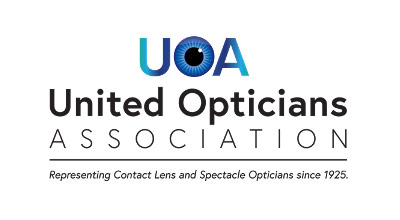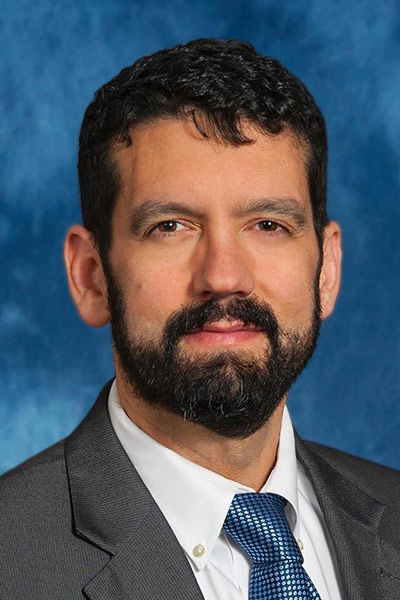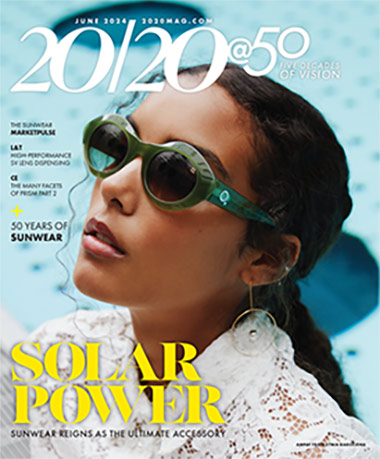

Merging two very important organizations (NFOS and OAA) is a lofty and exciting undertaking. What are you most excited about in the future of this new organization?
Since I’ve returned to organized opticianry in 2019-2020, what has struck me is the overwhelming passion, drive, and desire on the part of so many to move the profession forward.
Recently, however, there has not been a particularly effective mechanism or group to do so. There has been myriad national opticianry related organizations, and each had the best intentions, but often there seemed to be a disconnect of sorts, and an inability to effectively and efficiently work towards a common goal. By uniting the major groups in opticianry at a national level, it will unquestionably lead to better and more effective outcomes, which is the advancement and promotion of the profession of opticianry. This will unquestionably lead to an improvement in the state of opticianry.
You are the former Executive Director of the National Federation of Opticianry Schools (NFOS,) which has merged into the United Opticians Association (UOA.) Can you speak about your commitment to opticianry education?
I am a firm proponent of education as the backbone of any health profession.
I have had a long history of interprofessional collaboration in my academic career. I’ve worked and taught along Optometrists, Osteopathic Doctors, Dentists, Physician Assistants, Nurses, Occupational Therapists, and countless others. I’ve personally witnessed each of these various health professions experience quantum leaps in the advancement of their profession over the last few years and decades.
In each of the various health professions, there are a few crucial elements that are required, which include:
- a solid infrastructure on the state and national level to educate the public, lawmakers, and other professions, and
- a solid, standardized, formal education for those entering the profession
My position is that adopting rigorous evidence-based educational standards for any profession is the key to advancing that profession. Opticianry is no exception. Many of the issues that are common concerns among those in the optical industry, which include lack of licensure, lack of reciprocity between states, limited scope (fitting contact lenses is an obvious example), and perceived lack of legitimacy and acceptance by other healthcare providers can be directly or indirectly solved by adopting strong, standardized and evidence based formal education for opticians.
As Vice President, what role do you see yourself filling and what will that look like in the upcoming year?
The primary goal I have is to continue to work with our amazing Executive Director, Jim Morris, the entire staff at the UOA, and the exceedingly talented group of volunteers on the Board of Directors.
But even a group as amazing as the UOA still must be sensitive to the needs and input of opticians all over the country. I have had the absolute honor to lecture all over the country in countless different states, and I have seen some unbelievable work done at a state level. To gather the best ideas from the brightest minds all over the country to help advance and promote the profession and translate those to a national stage is likely one of my highest priorities, and will require an exceptional amount of communication, outreach and listening to ensure our national group can forge the best path forward for the profession.
You are an optometrist; how did you develop your passion for opticianry and why did you choose to work in this direction?
Interestingly enough, I started as an optician. I used to hang around my dad’s fabrication laboratory when I was really young (may have violated an OSHA regulation or two, but…), and started working part time in 1987. I began working in earnest as an optician in the early 1990’s, earned a two year Associates Degree in Opticianry, was licensed as an optician, and was an active member of my state association for years.
I decided to pursue a degree in Optometry a bit later in life, and my optical background did have an effect and impact on my journey. What was amazing about my involvement with organized Optometry, on a state and national level, was that I was able to see how they (and other health care providers) have been able to advance their professions using state and national associations, formal education, and a lot of volunteer work from professionals all over the country. I believe that opticianry is primed to follow that blueprint, and the UOA is the very best vehicle opticianry may have ever had to advance and promote the optical profession.
I also have seen a seismic shift in the attitudes of optometrists towards opticians over the last 30 years. When I started, the relationship between organized Opticianry and Optometry could be described as competitive and confrontational. As Optometry has advanced, I’ve seen a drastic shift in a large percentage of ODs who now view opticians, dispensers, and optical experts as not competition, but as colleagues and a critical part of the care team for their patients.
I am a staunch advocate for both the professions of Optometry and Opticianry, and for our colleagues in Ophthalmology. It is important that we as a group can bridge the gap between those various professions, helping share strategies that work for other groups, maintaining open communication, and working towards advancing eyecare for all eyecare professionals, and ultimately (most importantly) working to benefit of all of our patients and those we care for.
How do you expect this merger will help to elevate the profession of opticianry?
I think opticianry will have a stronger, more unified voice, which has potentially been missing up to now.
Having a platform:
- to support state associations (providing resources for existing groups, and helping establish societies in states where none currently exist)
- increase awareness of the importance of qualified, trained, educated and talented opticians to state and national audiences, and
- helping to develop and provide accessible, high quality, evidence-based education for all opticians will all be key priorities that I expect this new national group to achieve.
Lastly, what is one thing that would surprise most people about you?
Oh goodness, wasn’t expecting that question…One that comes to mind is that oddly enough, I was painfully shy as a youngster. If you’ve ever met me as an adult, been to one of my lecture/review class/workshops, worked with me on a volunteer board, or watched me compete in opticianry or optometric competitions, it may be hard to fathom. I figure that may surprise a few folks.
Thank you Aarlan! Nice to know you!










